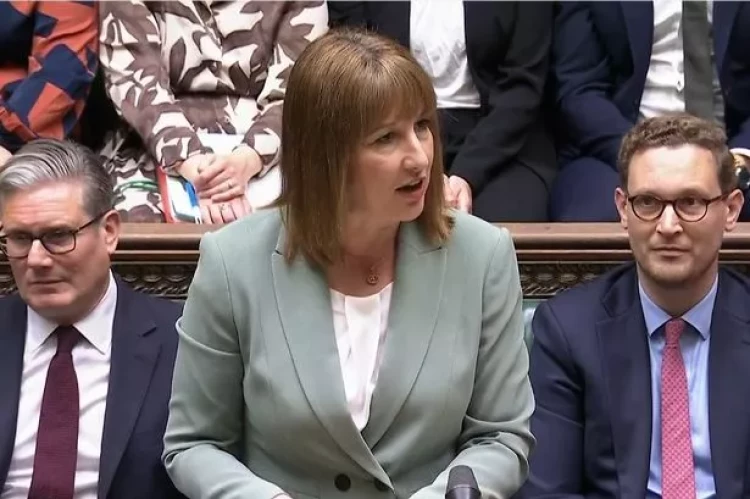TWIN spectres haunted Rachel Reeves today as she delivered Labour’s first Spending Review since 2007: Nigel Farage and Liz Truss.
Labour’s political strategy is focused on ‘hero voters’ – estimated by party strategists as the 10-15 per cent of the electorate whose choices in the 2029 general election will determine its success or failure.
The typical ‘hero’ backed Brexit, before voting for Boris Johnson’s Tories in 2019, then five years later went for Labour – but without much enthusiasm and mainly to kick the Conservatives out. Currently they lean markedly towards Reform UK, but could end up backing Labour or even the Tories.
Many live in ‘Red Wall’ constituencies – and it was to the North and Midlands that swathes of spending were diverted by Reeves today, mainly at the expense of London and the South East.
Infrastructure projects costing billions of pounds more were almost all focused on Red Wall areas, as were the most ambitious housing programmes. The Chancellor also stressed lower-level Reform voter-friendly plans for more parks, graffiti clean-ups, and filling in potholes.
She attempted to make a virtue of ending the use of hotels for asylum seekers by 2029 – which she said would save £1 billion a year – but again there were little or any details and sharp-eyed observers noted the promise featured in Labour’s election manifesto last summer.
Without the ‘scoring’ of measures by the Office for Budget Responsibility (this being a three-year Spending Review and not an annual ‘fiscal event’ such as a budget), it was necessary to drill down into Treasury paperwork to see the true picture.
While the NHS and defence spending was boosted as expected, there were real-terms cuts across Whitehall departments: notably for the Home Office, Foreign Office, Business & Trade, Environment, and Transport,
While big names such as Home Secretary Yvette Cooper lost out, winners included Angela Rayner, whose department includes housing and local government and who is currently the favourite to be the next Labour leader after setting out a range of policy positions designed to appeal to the party’s centre-left membership.
Ed Miliband, too, defied predictions that his net-zero passion was set for the chop, seeing his DESNZ empire receiving a cash increase. Peter Kyle, whose science and technology department is in the vanguard of the government’s drive for AI-fuelled growth, saw his budget boosted by an annual average of more than 7 per cent.
But with difficult decisions on how exactly to fund the government’s plans, which most observers believe will feature significant tax rises, the day of reckoning for the Chancellor was postponed until her autumn budget.
That will be costed by the OBR, whose verdict will be closely studied by the bond markets – and it was here of course where Truss came mightily unstuck in 2022 as the markets took revenge against her wildly uncosted tax reductions.
Reeves knows she must focus everything she does on avoiding a similar market mauling, while taking every opportunity to link Farage, who hailed the short-lived former PM’s disastrous statement as ‘the best Conservative budget since the 1980s’, to Ms Truss herself.
By ‘front-loading’ spending in the coming years while pencilling in politically unlikely cuts for the immediate pre-general election period, Reeves is once again betting the farm on growth. The question remains whether she has done enough, and will do enough, for businesses to get behind her.
The Chancellor is walking a political and economic tightrope – but she managed to get halfway across today without any fresh mishap.

katedarkins-7.jpg)





